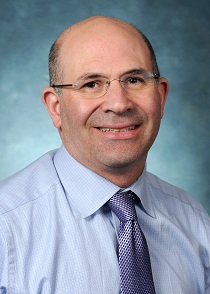Research in the Department of Surgery
It's what makes us different
What sets OHSU apart from other institutions is the array of multidisciplinary and collaborative approaches our researchers take toward solving the most intractable problems in human health, including diseases of the central nervous system, cardiovascular-related research, cancer, rare genetic disorders and infectious disease.
Research and education coming together
General Surgery residents have the option to spend a full academic year in their fourth year of residency as a research resident. Permission to do a research year is highly competitive and requires that the resident attend and present at several research conferences throughout the year.
Medical students in any year also have the option to complete a surgery research elective.
Current surgery research
Research in the Department of Surgery is both clinical and translational. Experts from multiple disciplines study specific diseases and disorders in order to improve human health and well-being.
As the state's only academic health center that receives public funding, OHSU's breakthrough research leads to new cures, new standards of care, and a better understanding of the basic science that drives biomedical discovery.
Vice Chair for Research

Jonathan Brody, Ph.D., is the Department of Surgery Vice Chair for Research and the Associate Director of the Brenden-Colson Pancreatic Center for Patient Care. He was a member and co-leader of the GI Cancer Program at the Sidney Kimmel Cancer Center (Thomas Jefferson University).
Dr. Brody received his Ph.D. from The Johns Hopkins University School of Medicine, and his thesis specialized in studying the molecular aspects of cancer and cancer genetics. He patented, with Dr. Scott Kern, novel buffers for DNA identification (DNA electrophoresis buffer), that have changed the format of this molecular biology technique used to detect DNA. He was elected Chair of the Cancer Research Program (PRCRP), Department of Defense council and serves on many international study sections, including currently being the Chair of the Tumor Biology and Genomics study section for the American Cancer Society and a permanent member of the Cancer Prevention Study Section NCI study section panel. He has published over 135 peer review publications in many top tier scientific and cancer journals. Additionally, he was an American Cancer Society Research Scholar, is NIH (NCI, R01) funded, and won the American Association of Cancer Research, Pancreatic Cancer Career Development Award in 2010. His lab focuses on many molecular aspects of pancreatic cancer, including developing ways to target a novel pro-survival network in pancreatic cancer cells and optimizing current targeted therapies used in the clinic (i.e., an interest in personalizing therapy for pancreatic cancer patients, PanCAN, RAN grant PI). Specifically, his lab is focused on an RNA binding protein, HuR, that is a involved in regulating a pro-survival network in various microenvironment settings involved with pancreatic cancer and targeting the DNA repair pathway (i.e., BRCAness) in pancreatic cancer.